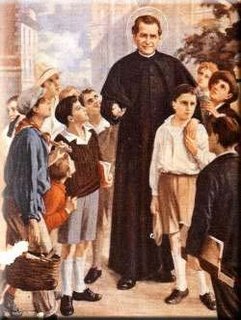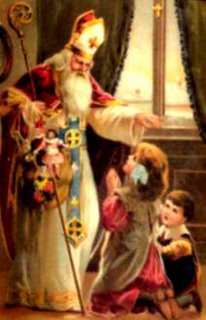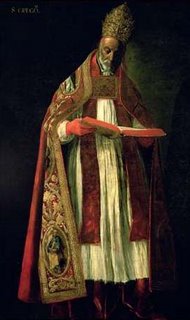
John Bosco was born into an impoverished family in the year 1815 in a small house around the Piedmont area of Italy. Both his parents tried their hardest to provide for their family, but, when John was only 2 years old his father died, leaving his mother, Margaret to be the sole provider. To help support his Mother and family, John was hired out as a shepherd to the local farmers of the region. This was hard for the young John as he was an extrovert by nature and he possessed an avid curiosity to learn as much as he could.
The young John would sometimes go to circuses, and then to the amusement of his friends he would play act the performances he saw, and also some of the tricks that were used, but this was not enough to satisfy the longing John had in his wish to enter the Priesthood. He confided this longing to his Mother who allowed him to attend school for part of the year in order to gain an education to enter the Seminary. Though times were hard, like many mothers, Margaret wanted the best for her children, so she made no objections upon hearing of John's desire to enter the Priesthood at such a young age.
Finally the day came when John could fulfill his deepest desire and enter the Seminary to become a Priest. In order for him to attend college and the Seminary John worked at many jobs as a shoemaker, baker and carpenter, whilst studying diligently at the same time. Johns Gift in being able to retain facts would be of great benefit to him, as his curious mind grasped the deepest mysteries of our Faith.
But being exuberant in nature, Johns love of people shone forth and his compassion for young and troubled boys soon became evident to those around him. Johns sense of humour also made him accessible to these troubled young lads. Finally the day came when he entered the Priesthood his Mother, Margaret who was overcome with joy at the Faith John displayed begged him to always be a good role model and Priest, John indeed was to keep his word!
But it was as he worked in these different jobs that John Bosco came to see and recognise the plight of the poor young boys of his country and soon realised that if help was not given to them then they would probably enter into the criminal underworld. But though Don Bosco knew the plight of the boys he also knew that it would take more than handouts to help them gain self respect and also to maintain their Faith in God and the Church.
Hence from this Don Bosco was to begin his fledgling vocation, to save the boys from a fate worse than death, he wanted to help save their souls before they were lost to the criminal elements surrounding them. Coming from a poor background himself enabled Don Bosco to connect with the youth in his area and to gain their trust and respect.
In order to teach the boys the Faith of the Catholic Church, Don Bosco chose to weave familiar parables and also short analogues in order for the boys to understand that God never changes but that He could change them for the better. Don Bosco in order to provide a home for these boys bought a derelict farm almost uninhabitable, but with the help of these very same boys he taught them how to do carpentry and other necessities, it was not long before the farm was up and running.
But Don Bosco also knew that young boys also needed time to play and fool around in a jocular manner and he encouraged their play time, in that it allowed them all to exert their energies into a wholesome way of having plain simple good fun. So the daily life of the boys soon fell into a daily routine of building, growing vegetables and generally working the farm to help make it self productive.
Though the boys worked hard and played hard Don Bosco did not neglect their spiritual needs and instructed them in the Faith, and what God expects from each of them, for this Priest embraced the work ethic alongside their spiritual development. So from his example the boys tried to live in order to please God through their work and their lives.
From these early beginnings began Don Bosco's Order the Society of Saint Francis de Sales, which would become known as 'The Salesians', but it was not all plain sailing for this affable Priest. In trying to secure a better future for his beloved boys, also brought criticism from those around him and many complaints were lodged against Don Bosco and his venture to help the poor youth in his area. But Don Bosco was resolute in nature and nothing would deter him from this vocation, in providing a sustainable livelihood for the boys that entered his home, so that their future could also be guaranteed!
Things were to become so difficult for Don Bosco that he was joined by his Mother, Margaret to help provide the boys with a security and a love which only a mother figure could provide. So, Margaret Bosco was soon to become the 'mother' of hundreds of boys. In order to help her son in his mission, Margaret sold everything she possessed in the world for she knew within her own heart that these boys would be lost if help was not provided, therefore she gave all she had, including herself.
Don Bosco was the sole provider and also the only hope for these boys, for this Holy Priest knew that in order for the boys to respect others they must first start with themselves. He knew the vices which could lead any of these young boys astray and so through love, acceptance, compassion and discipline he taught these troubled youths, self control and self discipline not by the rod but by love.
This Holy Priest tried to instill in these boys a sense of self worth, by giving them hope for their futures that there was a way out of the poverty cycle. Don Bosco also instructed the boys in the virtues and to strive with all their might to embrace these virtues and to ward off sin in all its forms. He instructed the boys in all elements of the Faith and encouraged strongly the frequent use of the Sacraments, most especially that of Penance.
From his own youth the young John Bosco was the recipient of many visions, which helped guide him to helping his precious boys to the Light of Jesus and a firm foundation in the Tenets of the Church, he never wavered from the mission that God and our Lady asked of him. Later Don Bosco would be joined in his mission by Mary Mazzarello who would also follow his rule in providing a good and wholesome place to help the troubled young girls of her area. Both Don Bosco and Mary Mazzarello would become Saints.
Don John Bosco died at the age of seventy-two in 1888.
Saint John Bosco was Canonized in 1934 by Pope Pius XI.
Copyright © 2007 Marie Smith. All rights reserved.



